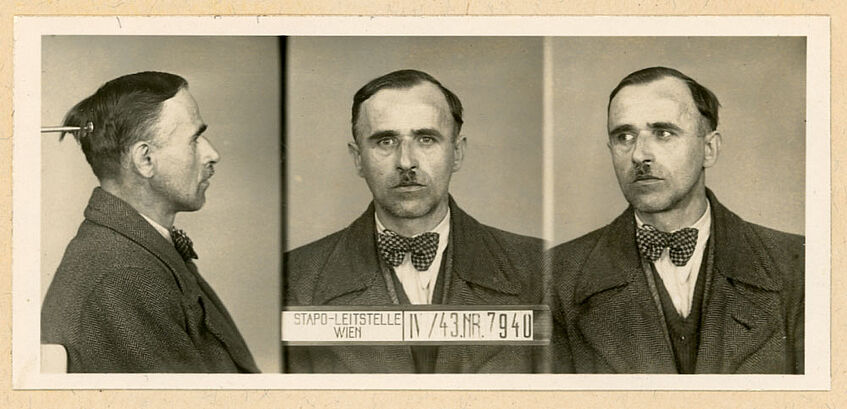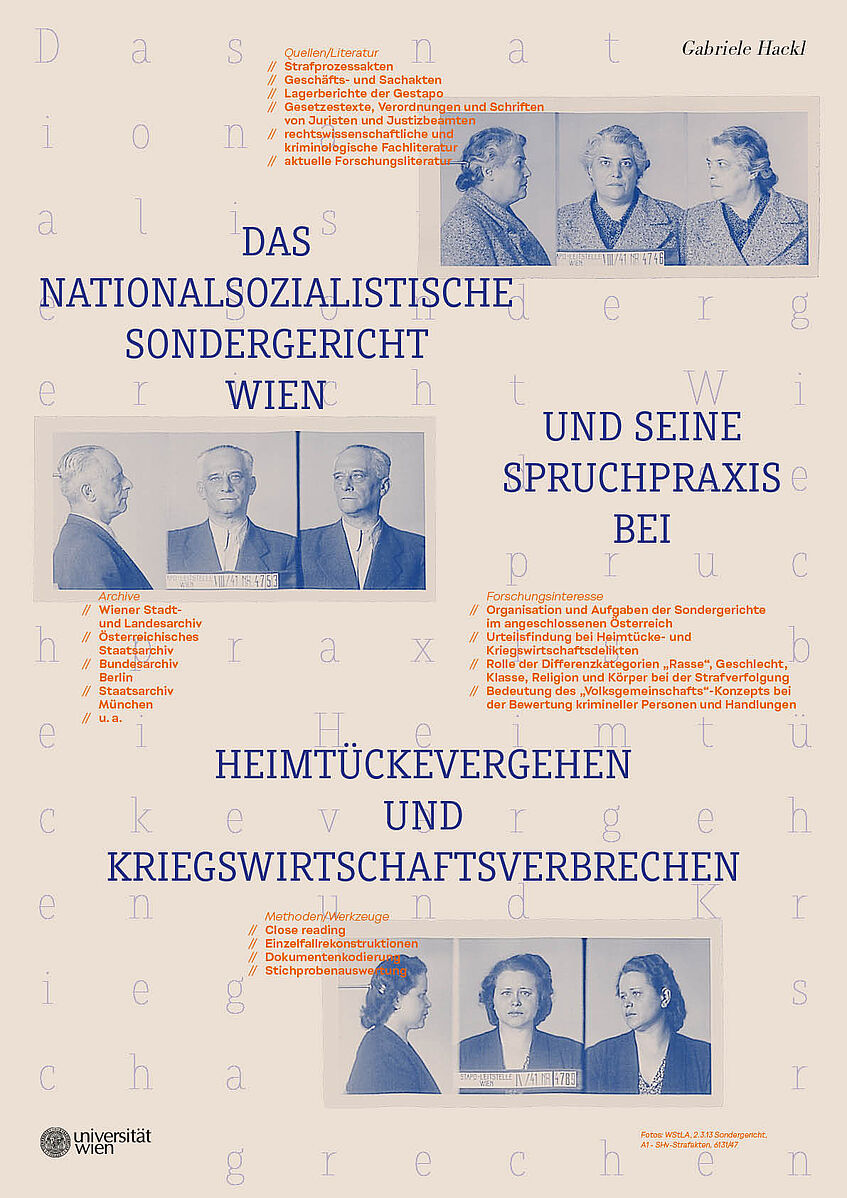Das nationalsozialistische Sondergericht Wien und seine Spruchpraxis bei Heimtückevergehen und Kriegswirtschaftsverbrechen

Rudolf Babinsky (born 1899) was charged under para. 2 (2) of the "Heimtückegesetzes" before the Vienna Special Court and sentenced by it to eight months in prison on 21 September 1943. Photo: Wiener Stadt- und Landesarchiv, Sondergericht A1 – SHv-Strafakten: SHv 5562/47.
Das nationalsozialistische Sondergericht Wien und seine Spruchpraxis bei Heimtückevergehen und Kriegswirtschaftsverbrechen
Doctoral thesis project | Gabriele Hackl
Supervisor: Univ.Prof. Dr. Bertrand Perz
Project staff : Gabriele Hackl, BA MA
Funding: DOC Fellowship of the Austrian Academy of Sciences
Duration: 01.12.2018–30.09.2021
The special courts of the Nazi regime were important instruments for enforcing Nazi policy and realising the desired "national community". Their judicial practice defined acceptable and undesirable behaviour and stigmatised those who were to be excluded from the community of the "German people". In the dissertation "Women and Men before the Special Court Vienna", the "Volksgemeinschaft" concept is understood as a new normality template that was decisive for the evaluation of criminal or "asocial" acts or persons. The way in which this ideological concept was reflected in the administration of justice in an annexed territory, and whether and how quickly it was implemented, will be demonstrated on the basis of the Special Court (SG) Vienna. It was the largest of the "Ostmark" and the "Danube and Alpine Reich Gaue" and was originally set up in 1938 as a special senate at the Higher Regional Court. After 1939, it was based at the district court, and by 1942 its jurisdiction had been extended to include the district court districts of Krems, St. Pölten and Znaim.
The dissertation project examines the application of standardised law, the significance of informal decision-making parameters and the setting of new boundaries of normality by the Special Court Vienna for the years 1938–1945. The fulfilment of the role and value perceptions of the lawyers involved played a particularly decisive role in the punitive law of the will practised under National Socialism. Targeted changes in legislation and jurisdiction opened up new spaces for interpretation and action for the judicial officers. The codification of the general clause of the "violation of healthy national sentiment" as a basis for judgment created the ideal means for enforcing the National Socialist world view. At the same time, formerly informal criteria of jurisdiction – be they ideas about gender roles or codes of conduct that drew on criminological or racist discourses – could now determine the fate of those persecuted.
Accordingly, the dissertation project deals with the impact of the five social dimensions of race/ethnicity, gender, status/class, religion and body/health on the criminalisation of persons and actions. Specifically, the project will examine political offences of treachery and non-political war economy crimes, as these are the most frequently prosecuted offences at the SG Wien. The dissertation combines legal and social-historical approaches with gender studies theory, sociological methods and tools from the digital humanities. The aim is to show the thought categories and patterns of action of the lawyers at the SG Vienna, as well as the actual significance of the "Volksgemeinschaft" concept in the political judiciary in the annexed Austria.

